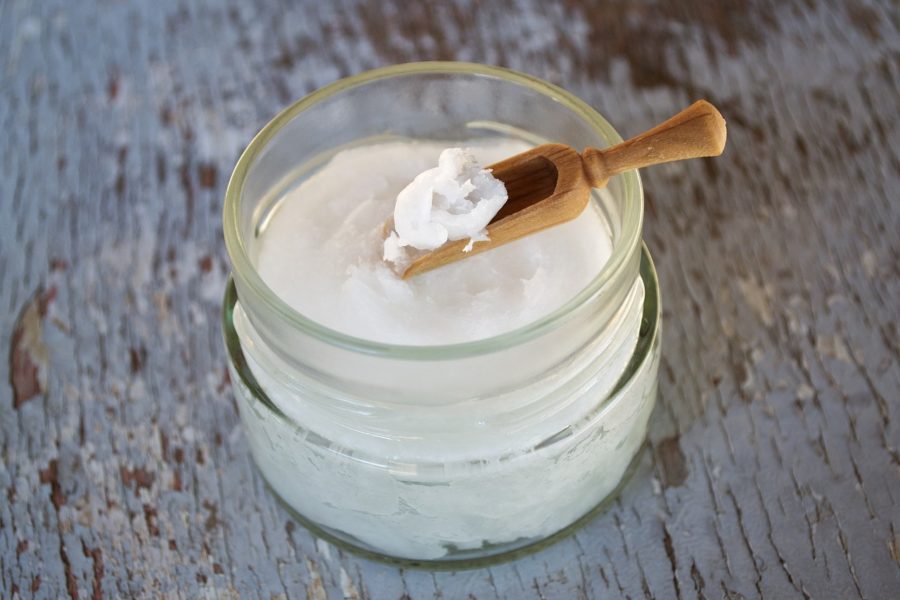Dissecting The Coconut Oil Obsession: What Are The Uses?
Coconut oil has quickly become a staple amongst people for basically anything. It is probably the most versatile health food on the planet and is classified as a “superfood.” Heck, I even use it to clean my beauty blender (see my other article, shameless plug).
The benefits of coconut oil stretch from skincare to diseases to fat loss. It can be used in cooking, baking, and even as creamer inside your coffee (if you are into that type of stuff). Considering its many uses and benefits, it is no wonder coconut oil has risen in popularity over the past couple of years. So, what makes it a must have?
Let’s start with the most popular uses – hair, skin, and cooking/baking. Coconut oil is a godsend to dry skin. If you ever noticed that your favorite moisturizer or primer contained coconut oil, it is because the skin does not react badly to it, making it ideal to put in skincare and cosmetics. Coconut oil can also prevent the appearance of wrinkles and saggy skin. It also helps to treat skin issues, like eczema and psoriasis.
Coconut oil is also a friend to your hair. It helps to grow hair by getting deep into the follicles while making your hair shiny and soft. It also prevents dandruff, split ends, and hair breakage. It is most effective in helping dry and damaged hair. It contains the essential proteins that help to nourish, grow, and heal the hair. A great way to utilize coconut oil is to use it in the shower as a hair mask. Letting the coconut oil melt from its (somewhat) solid form into a liquid, applying it over the hair, and then leaving it on for five minutes before rinsing will give your hair the love it deserves.
Many people use coconut oil in place of butter, cooking oil, and shortening because it is a healthier alternative. It is best to keep in mind that coconut oil will solidify if added into cold ingredients, such as milk and eggs. There is also no need to worry about coconut oil changing the flavor in whatever you are cooking and baking because the flavor is extremely subtle. However, coconut oil is more common in baking than cooking because of its sweeter tendencies.
The health benefits are arguably the most important and interesting. Coconut is jam-packed with saturated fat. Saturated fat is notoriously known for being a bad fat but that is not the case here. Coconut oil contains Medium Chain Triglycerides (MCTs), which is metabolized differently. It quickly travels from the liver to the digestive tract and is turned into a quick source of energy. It can also be turned into ketones, which have been proven to be beneficial to brain disorders like Alzheimer’s. The ketones in coconut oil can also help fight cancer and prevent it.
Coconut oil can prevent heart disease and high blood pressure because it is mostly made up of saturated fats, which increases “good” cholesterol and helps to turn “bad” cholesterol into the good. It also helps to treat Urinary Tract Infections (UTI) and kidney infections and also helps protect the liver because the medium chain fatty acids in the oil work as a natural antibiotic.
Coconut oil also works to give your immune system and endurance system a boost. The oil contains lauric acid, which is known to fight off bacteria and viruses. This, in turn, boosts the immune system. It can give your endurance system a nice boost, as well as increase your energy because it speeds up your metabolism and produces longer, continuous energy.
The increase in energy and faster metabolism also helps you to lose weight and burn fat. They can also help in building muscle. Since it is easy to digest, it can help improve the good bacteria in your stomach because the omega-3 fatty acids become more effective and help fight off stomach ulcers and ulcerative colitis.
Some other health benefits of adding coconut oil into your diet include osteoporosis prevention, gum disease prevention, and helps alleviate the symptoms that come along with type 2 diabetes.
You can buy coconut oil in your local grocery store and costs around $10 to $20.
Your donation supports independent, student-run journalism at Pace University. Support the Pace Chronicle to help cover publishing costs.


